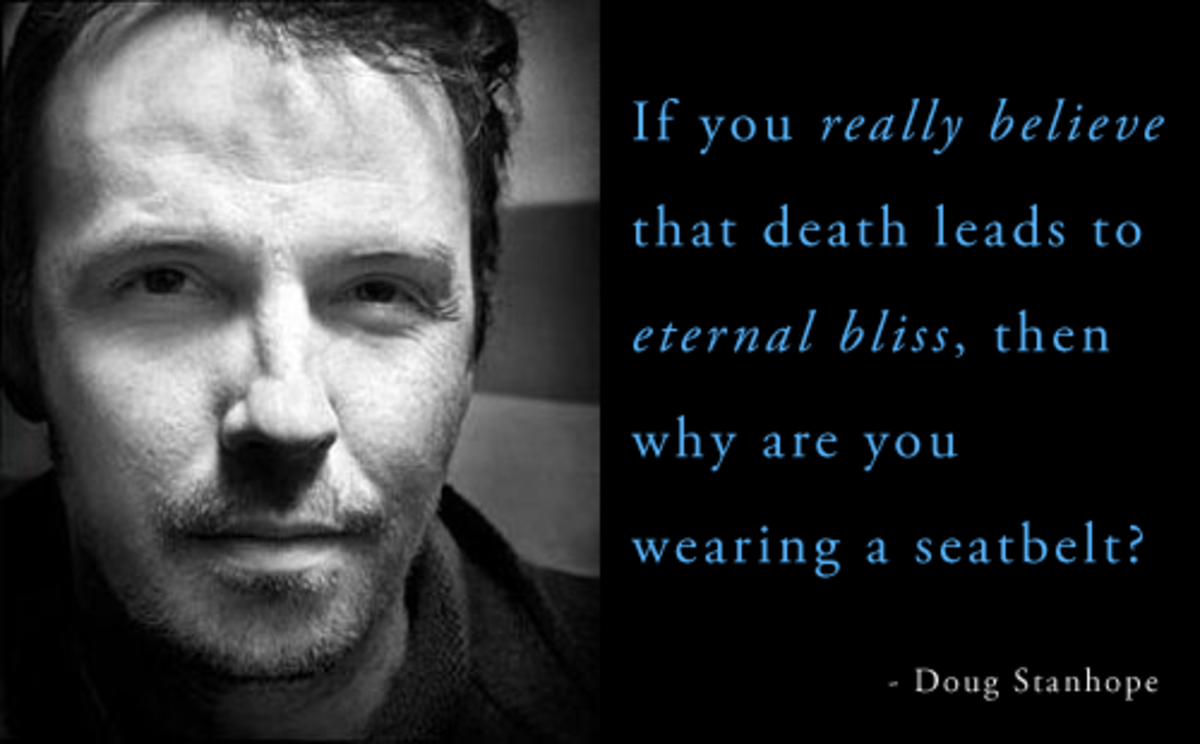What Does Agnostic Mean?
Agnosticism and Atheism are Not The Same
Agnostic is a term created by the English zoologist Thomas Henry Huxley (1825 – 1895) in 1869.
The word agnostic comes from the combining of two Greek words, "a" which means without and "gnosis" which means knowledge. Thus, agnostic refers to the belief that certain things are unknowable (without knowledge or no knowledge to back up the belief in the existence the thing in question).
Huxley invented the term agnostic to explain his idea (actually his philosophy) that it is impossible to know whether traditional Western religious beliefs, such as the existence of God, of Heaven or Hell, or an afterlife, etc. are true or not.
Term "Agnostic" Can be Applied to Non-Religious as Well as Religious Beliefs
While the terms agnostic and agnosticism are generally applied to religious beliefs, some, such as the Merriam-Webster Online Dictionary, also apply the term to non-religious opinions (such as political opinions) the truth of which cannot be proved or disproved.
The British philosopher Bertrand Russell, in his short essay entitled What Is An Agnostic?, included a paragraph on Soviet Communism which he described as a dogmatic faith, the doctrines of which agnostics would also treat as unknowable knowledge despite the fact that this was a political rather than a religious dogma (the rest of the essay dealt with agnostics' views of religious dogmas).
Agnostics Rely on Reason Alone while Religious People Rely on Reason PLUS Faih
The main difference between an agnostic and a person who worships a god is that the agnostic bases everything on reason while the person who worships relies on both reason and faith.
Agnostics do not deny the existence of God, rather they say there is no way, with reason, to prove or disprove the existence of God. Traditional Western religious belief is also based upon reason but, when the limits of reason are reached, these people use faith to justify their belief in the existence of God.
Doubting Thomas and the Need for Faith in Religion
The New Testament Gospel of John relates the story of the Apostle Thomas who refused to believe that Christ had risen from the dead until the risen Jesus appeared before him.
It wasn't until Jesus appeared before Thomas and allowed Thomas to touch the holes in his hands that Thomas believed Jesus had risen from the dead.
Jesus then admonished Thomas, saying You became a believer because you saw me. Blest are they who have not seen and have believed. (John 20:29-30).
In this passage St. Thomas, like an agnostic, required physical evidence before he believed. However, following Thomas' belief based upon physical evidence, Jesus announces that future followers will not have have physical evidence upon which to base their belief but will have to rely on faith.
Agnosticism is Not the Same as Atheism
Agnosticism is not synonymous with atheism.
An agnostic neither accepts nor denies the existence of God.
Instead, the agnostic position is that the existence of God can be neither proved nor disproved.
An atheist, on the other hand, denies the existence of God.
Some Basic Terms and Beliefs Associated With Them
Here is a rough glossary of terms and the beliefs that they encompass (the explanations below are highly simplified and do not fully explain the beliefs of each, however, a Google search of each of the words below will provide an abundance of information on each one).
Theism (from the Greek word theo or god) this is a belief in one or more gods (monotheism - a belief in one god, polytheism – a belief in multiple gods).
Theism is not only a belief in the existence of a god or gods but also a belief that the god or gods are actively involved in the world with us (example, the Christian belief that God knows all, sees all and has concern for his creation and the people in it).
Deism is a belief in God and that God created the world but, once the world was created, God stood aside and declins take an active interest in what goes on in the world.
Agnosticism – neither believes nor denies the existence of God and feel that it is not possible to prove or disprove God's existence.
Atheism (from the Greek "a" which means "without" and "theo" which means "god") is a belief that there is no such thing as a god or gods.
Links for More Information
- Definition of agnostic - Merriam-Webster Online Dictionary
Definition of agnostic from the Merriam-Webster Online Dictionary with audio pronunciations, thesaurus, Word of the Day, and word games. - AGNOSTICISM
Agnostics: Doubting the existence of God - Thomas Huxley
- Thomas Huxley - Wikipedia, the free encyclopedia
- Thomas Henry Huxley [Internet Encyclopedia of Philosophy]
- Agnosticism - Wikipedia, the free encyclopedia
© 2006 Chuck Nugent








